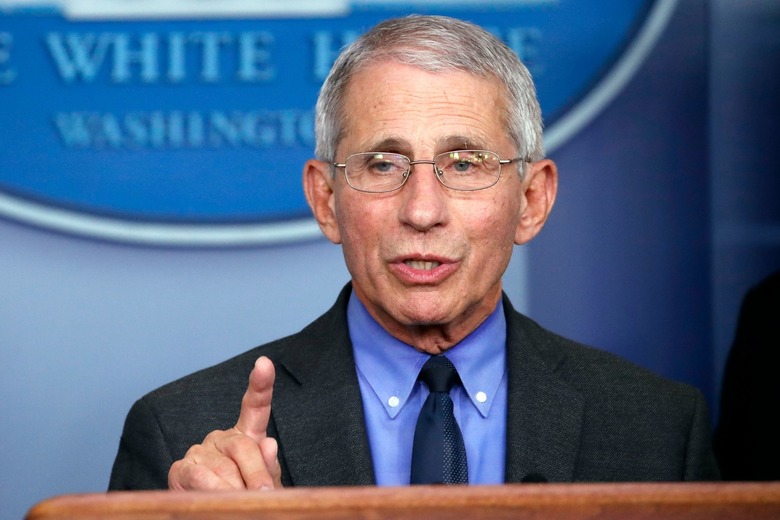Dr. Fauci Says We Should Never Shake Hands Again, Even When This Pandemic Is Over
- Dr. Anthony Fauci, the Trump administration's most public expert on the coronavirus pandemic, is strongly recommending that everyone avoid shaking hands ever again, even after a vaccine arrives for the virus and things start going back to normal.
- Dr. Fauci made that recommendation during an interview when asked about what behaviors might linger, even in a post-coronavirus world.
- Visit BGR's homepage for more stories.
Everyone is eagerly trying to look ahead and imagine what the post-coronavirus quarantine future looks like once we get to whatever the other side of the current status quo is. Maybe imagining a little aggressively, since so many people, sadly, are still dying, and we still don't have the testing and surveillance apparatus in place that we'll need in order to start tentatively opening the US economy back up again.
The public face of the Trump administration's response to the coronavirus crisis, however, has already offered at least one blunt suggestion we should try not to forget once we're past this pandemic. And given that Dr. Anthony Fauci is the infectious diseases expert who's one of the few trustworthy voices in the Trump administration on this, it's something we should definitely not ignore. His recommendation: Absolutely no more handshakes, even after we've defeated this virus. "As a society, just forget about shaking hands," Fauci said during a new television interview.
"We don't need to shake hands," he continued. "We've got to break that custom. Because as a matter of fact, that is one of the major ways you can transmit a respiratory-borne illness."
He was making that point as part of a larger discussion about how he thinks some of the behaviors and habits we're practicing now will in all likelihood become facts of life going forward, in a post-coronavirus world. And in the case of doing away forever with something like a handshake, which can easily spread germs, that's a good thing. "I think what we're going to have embedded and imprinted in us forever is the realization that something as catastrophic as what the world is experiencing now can happen," he said.
The fact that we're talking about this kind of future now comes the same week that at least some public officials and health experts like Fauci have started to talk about seeing "glimmers of hope" in the virus data related to cases and the number of deaths. While the number of deaths stemming from the virus is continuing to rise, Fauci said in another interview that there's, perhaps paradoxically, reason for a little hope. That's because around the US there's been "a stabilization and a decrease" in the numbers of hospitalizations, admissions to intensive care and the need for intubations. Those things are going down now, while the number of deaths is still rising — which, unfortunately, lags behind improvement in those earlier indicators. If fewer people are admitted to the hospital today, in other words, it means fewer people dying tomorrow.
